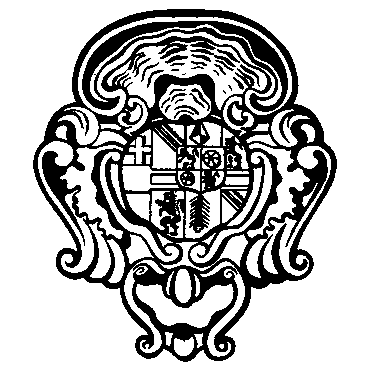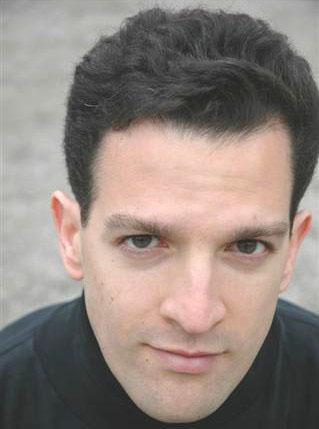|
Ricardo Luna wurde in Buenos Aires geboren. In seiner Heimatstadt
studierte er am Conservatorio Nacional Klavier und Violine. An der argentinischen katholischen
Universität schloss er die Fächer Chordirigieren, Orchesterdirigieren und Komposition mit
ausgezeichnetem Erfolg und dem Magistertitel ab. Noch während seines Studiums gründete Ricardo Luna
den Kammerchor "Coro de Puerto Madero", mit dem er bei zahlreichen Konzerten auftrat, und
leitete auch Chor und Orchester der Universität bei mehreren Konzerten.
Er nahm an Meisterkursen für Chor und Orchesterdirigieren in Argentinien und Europa teil, unter
anderem bei Kurt Masur, und studierte privat bei Prof. Michael Luig in Köln und Prof. Erwin Acel in Wien.
Seit 2000 lebt Ricardo Luna in Wien, wo er ein postgraduales Studium für Dirigieren bei
Prof. Uros Lajovic und Komposition bei Prof. Erich Urbanner an der Universität für Musik und
darstellende Kunst absolvierte. Während dieser Zeit erweiterte er sein musikalisches Spektrum
auch durch Mitwirkungen beim Wiener Singverein (Leitung: oProf. Johannes Prinz) und als Bariton
und Chorsolist im Arnold-Schönberg-Chor Wien (Leitung: oProf. Erwin Ortner)
Seine ersten Konzerte in Europa gab er mit Bruckners 1. Symphonie in Wien und Bartoks
Konzert für Orchester in Szombathely. Nach diesen erfolgreichen Konzerten dirigierte er bei
weiteren Gastdirigaten unter anderem Tschaikowskys Ouvertüre-Fantasie zu Romeo und
Julia, Tod und Verklärung von Strauss wie auch die 1. Symphonie von Brahms.
Seit der Konzertsaison 2004 ist Ricardo Luna erster Gastdirigent des Orquesta
Sinfónica Municipal de Gral, San Martín in Buenos Aires. Im selben Jahr debütierte
er im Teatro Colón mit der Symphonia Buenos Aires - einem Kammerorchester aus Mitgliedern
des Orquesta Filarmónica de Buenos Aires, dem profiliertesten Orchester
Argentiniens - anlässlich des 200. Jahrestages der Uraufführung von Beethovens 3. Symphonie.
Das "Projekt Eroica" fand im April 2005 in Wien im Großen Sendesaal des ORF,
wo Ricardo Luna den Wiener Concert-Verein (das Kammerorchester der Wiener Symphoniker)
dirigierte, seinen Abschluss. Dabei spielte der anerkannte österreichische Pianist
Christopher Hinterhuber im ersten Teil die "Eroica"-Variationen und Ingrid Wendl
moderierte das Programm. Dieses Konzert wurde mit einem Einführungsvortrag von Prof.
Dr. Otto Biba, Archivdirektor der Gesellschaft der Musikfreunde in Wien, präsentiert.
Im August 2005 überreichte die Obra Mundial pro Humanidad Solidaria, Instituto
Universal de las Naciones Ricardo Luna den Titel der "Nobleza Meritocratica"
und die Auszeichnung "Estrella Académica Universal", um seine
Verdienste als kultureller Botschafter Argentiniens zu würdigen.
Im Mozartjahr 2006 wurde er von der österreichisch-argentinischen Wirtschaftskammer
in Buenos Aires zum 60. Jubiläum dieses Vereines eingeladen, ein reines Mozart Programm
mit dem Orquesta Sinfónica de Gral, San Martin und vier verschiedene Chorensembles zu
dirigieren: auf dem Programm standen die Ouvertüre zu "Der Schauspieldirektor",
die Symphonie Nr. 36 "Linz" und die "Krönungsmesse".
Im Sommer desselben Jahres wurde Ricardo Luna zum künstlerischen Leiter
des Wiener Madrigalchores bestellt.
Unter seiner künstlerischen Leitung wird einerseits die Tradition
Chores fortgesetzt, andererseits werden neue Horizonte erforscht, wie
die bisherige Programmierung gezeigt hat. Ein großes Anliegen dabei ist, dieses
Ensemble zu einer bewussten Interpretation der Texte zu führen, die nicht von den
meldodisch-harmonischen Strukturen beschränkt sein muss und welche von der
entsprechenden Aufführungspraxis, die zu den unterschiedlichen Stilrichtungen gehört,
unterstützt wird.
Bei seinem ersten Chor-Orchester-Konzert mit dem Wiener Madrigalchor dirigierte
er im Dezember 2007 im Wiener Konzerthaus die Motette "Jesu, meine
Freude" von Johann Sebastian Bach, das Bandoneonkonzert von Astor
Piazzolla und die österreichische Erstaufführung der "Misa a Buenos
Aires" (1996) von Martin Palmeri, bei der die international renommierte
argentinische Mezzo-Sopranistin Bernarda Fink den anspruchvollen Solo-Part
sang.
Im selben Jahr präsentierte er mit diesem Ensemble in vier Bundesländern (u.a. im Wiener
Stephansdom und in der Stiftskirche Kremsmünster) ein Programm mit Instrumental-
Motetten von Bruckner mit Orgel- und Posaunenbegleitung, das - nach der idealen Forderung
des Komponisten - als musikalische Meditation gestaltet wurde. Diese Konzertreihe hat
Ricardo Luna als Einführung in die Chormusik Bruckners geplant, um eine Verbindung
zwischen den kleinen Kirchenmusikwerken und jenen großen geistlichen Chor-
Orchesterwerken, die er im Goldenen Saal des Wiener Musikvereins im Juni 2008 dirigierte,
herzustellen.
Ricardo Luna was born in Buenos Aires where he studied piano
and violin at the National Conservatory and received his 'Magister' degree in Music Composition,
Choir and Orchestral Conducting from the Catholic University of Argentina with honors. Still as
a student he founded and directed the chamber choir 'Coro de Puerto Madero'; he also conducted
numerous concerts with the University choir and orchestra.
He enhanced his studies in Choir and Orchestral Conducting in both Argentina and Europe.
He took Mastercourses with Kurt Masur in Buenos Aires and private lessons with Prof. Michael
Luig in Cologne and Prof. Erwin Acel in Vienna.
Ricardo Luna has lived in Vienna since the year 2000, where he completed his postgraduate
education in Orchestral Conducting with Prof. Uros Lajovic and Music Composition with
Prof. Erich Urbanner at the University for Music. He has worked with the Wiener Singverein
(Chorus Master, Prof. Johannes Prinz). He has sung as Baritone and Soloist in the Arnold
Schoenberg Choir of Vienna (Chorus Master, Prof. Erwin Ortner) on numerous concerts, opera
productions and tours with soloists and conductors such as Nikolaus Harnoncourt, Sir Simon Rattle,
Zubin Mehta, Daniel Barenboim and Maurizio Pollini ('Progetto Pollini' performed in Salzburg,
Paris, Tokyo, Rome and Vienna) as well as with prestigious orchestras including the Vienna and
Berlin Philharmonic and the Concentus Musicus Wien.
His first European concerts were with Bruckners 1. Symphony in Vienna and Bartoks Concert for Orchestra in
Szombathely. After these successful concerts he was invited to additional concert with Tschaikowskys Ouverture-Phantasy
to Romeo and Julia, Tod und Verklärung of Strauss and the 1st Symphony of Brahms.
Since the 2004 concert season in Buenos Aires, Ricardo Luna has been a guest-conductor of the
Orquesta Sinfónica Municipal de Gral. San Martin. That same year, on ocassion of the 200th
anniversary of the initial performance of Beethoven's 3rd Symphony, he conducted the Symphonia
Buenos Aires at the Teatro Colon - a Chamber Orchestra of musicians from the Buenos Aires Philharmonic
Orchestra, the most distinguished Argentinean Orchestra. On April 2005 he brought to a close the
'Project Eroica' in Vienna by conducting the Wiener Concert-Verein, the Chamber-Orchestra of the
Vienna Symphony, at the Great Projection Hall of ORF. This concert was performed in conjunction
with the presentations of Prof. Dr. Otto Biba, Archive-Director of the Gesellschaft der Musikfreunde in Vienna.
On August 2005 Ricardo Luna received the Title: 'Nobleza Meritocratica' by the Obra Mundial pro
Humanidad Solidaria, Instituto Universal de las Naciones, and also the Distinction: 'Estrella
Academica Universal' for his service as Cultural Ambassador of Argentina.
In the Mozart year 2006 he was invited by the Austrian-Argentine Chamber of Commerce to perform
a Mozart program with the Orquesta Sinfónica de Gral, San Martin and four choir ensembles as part
of the 60-year anniversary of this association. The program included the overture
of Der Schauspieldirektor, Symphony No. 36 Linz and the Coronation Mass.
In the summer of 2006, Ricardo Luna was named Musical Director of the Vienna Madrigal Choir.
Under his artistic leadership the choir continues it's tradition, but then also opens up new horizons,
which has been shown in the present programmes. To guide this ensemble to a conscious interpretation of
the lyrics, which is not necessarily limited by the melodic-harmonic structures and which is supported
by the appropriate performance practice based on different schools of music, is of utmost concern.
In December 2007, Ricardo Luna performed his first choir-orchestra concert with the Vienna
Madrigal Choir in the Wiener Konzerthaus. The line-up of compositions included the
motet Jesu meine Freude of Johann Sebastian Bach, the bandoneon concert of Astor
Piazzolla and the Austrian debut performance of Martin Palmeris Misa a Buenos Aires (1996)
with the world-renowned Argentine mezzo soprano Bernarda Fink singing the demanding solo part.
In 2007 he gave concert performances with his new ensemble in four Austrian provinces
(including performances in St. Stephen's Cathedral in Vienna and the Collegiate Church
in Kremsmünster, Upper Austria). The program, which followed Bruckner's original
intention of a musical meditation included rarely performed instrumental motets with organ
and trombone accompaniment. Ricardo Luna had planned this concert series as an introduction
to Bruckner's choir compositions which included smaller church compositions as well as the
large sacral choir-orchestra compositions. Concert performances of the Große Messe in
f-Moll (f minor) and Te Deum in the Golden Hall of the Wiener Musikverein in
2008 rounded out the Bruckner concert series.
|

